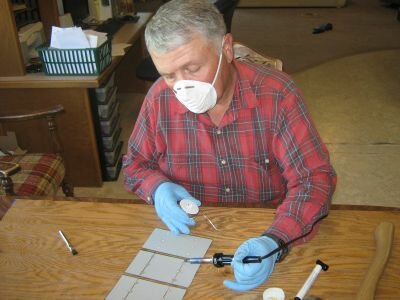
In this blog post, I wanted to write about choosing the right contractor for your home solar power project.
I understand some people would prefer to build the solar system on their own via Do It Yourself (DIY), but not everyone has the skill or know how to do so.
Like myself, I like the idea of using solar power to reduce my home electricity bill. But I have limited electrical and construction skill. If I wanted to take advantage of solar energy, my only option is to hire a professional to do it.
How do we choose the right solar contractor for the job?
I could think of 3 criteria on choosing a right solar professional.
1) Their craftsmanship
The challenge here is trying to compare apple to apple. The home solar industry is relatively new and there are many ways to do things.
Then how do we evaluate craftsmanship?
The easier way I can think of is to visit the contractor past project. This can be done by asking him to give you a project reference.
We want to look at the solder joints, weld joints, the neatness or the simplicity of the solar system installation of his previous work.
Obviously, you have to get the permission of the home owner to do so. If possible, try looking at older projects as well as the most recent ones.
Is the contractor’s work consistent? Is the work improving or decreasing?
2) Character compatibility
Another criteria when choosing a solar builder is his character. Do you like him? Is he trust worthy?
Sometime you can feel it in your gut.
If he is dubious or if he is trying to pull a fast one on you, most of the time you can feel it. Follow your instinct.
You want a contractor that is glad that you call and he is happy to answer all your questions. Having good relationship matters a lot. Not only it foster cooperation, it also makes problems that occur to be ironed out quickly and effectively.
If you and the contractor can’t see eye to eye, good luck trying to ask him to redo a certain part of the work that you do not like.
To prevent all these unnecessary headaches from occurring, it is best to find someone with a character comparable to yours.
How do you achieve that? Well, talk to him over a cup of coffee and get to know him before you award him the contract.
3) Project cost
The final criteria is the project cost. The project cost is important, but ultimately, it may be the least significant factor.
How so? Here’s the fact.
Things can and will go wrong during a home improvement project such as installing a solar power system. The problems will generally add up to increase the specified budget.
If you are getting a very low bid for your project, be very careful. Most probably he doesn’t understand what he is doing due to inexperience.
When you have worked out the final project budget, be prepared to add additional 10 to 15 percent for any unforeseen circumstances.
There are a lot of benefits that you can enjoy from using a home solar power system. However, many home owners are not willing to make the investment because of the long Return On Investment (ROI) period.
In order to improve you ROI, the best option is to get the system installation done without too many problems.
If you are serious about using solar power for your home, you should check out the Earth 4 Energy e-book by Michael Harvey.
Earth4Enery manual is easy to read and comes with lots of tips and strategies on how to build a home solar system at minimal cost. For a quick review of the e-book click here.
Do you like the information on this blog? If you do, you can subscribe to our RSS feed for the latest blog updates.
Related web pages:
1) Fairfield CT Handyman – Local Handyman and Home Improvement in Fairfield CT
